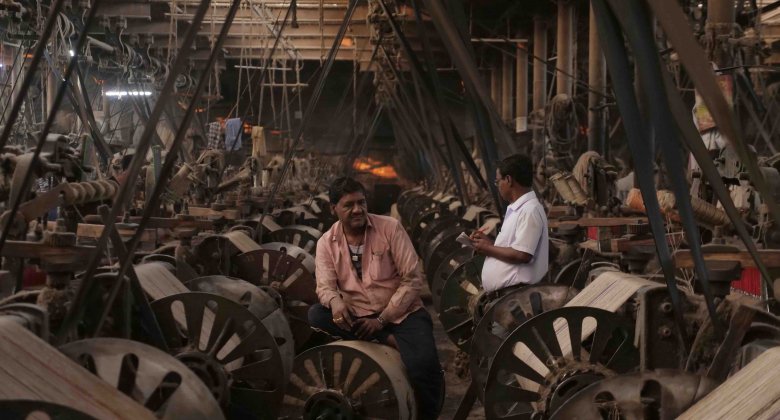
86 minutes | India, United Kingdom, Netherlands, Norway | 2022
SYNOPSIS
At the outskirts of Kolkata, the banks of the river Hooghly are lined with jetties and huge factories in various states of operation and decay. Some industrial chimneys belch smoke while others have trees growing out of them. This is the landscape of West Bengal’s 165-year-old jute industry, which once produced the ubiquitous gunny bags, rope, and jute textiles used by trade and commerce around the world. Almost all of these functions have been largely replaced by plastic, which is perhaps more durable but certainly environmentally disastrous.
Nearly forgotten, the jute industry is attracting renewed interest in the golden fibre due to its eco-friendly qualities. At the same time, the jute industry is in turmoil. A few mills remain in operation, with frequent shutdowns and lockouts to replace workers with precision machines. Can environmental concern recuperate a future for jute and for jute workers while there is still time?
The Golden Thread contemplates itself as a product of an encounter between jute workers, early industrial machines, and jute fibre. What was an unwanted fibre for 50
years is now being hailed as the ‘fibre of the future’. The act of filming is an act of archiving –documenting a past that has continued into the future, fade away.
DIRECTOR : Nishtha Jain

Nishtha Jain is an internationally-acclaimed filmmaker from Mumbai best known for her films Gulabi Gang (2012), Lakshmi and Me (2007) and City of Photos (2004). Her films interrogate lived experience at the intersection of gender, caste and class. They explore the political in the personal and uncover the mechanisms of privilege.


